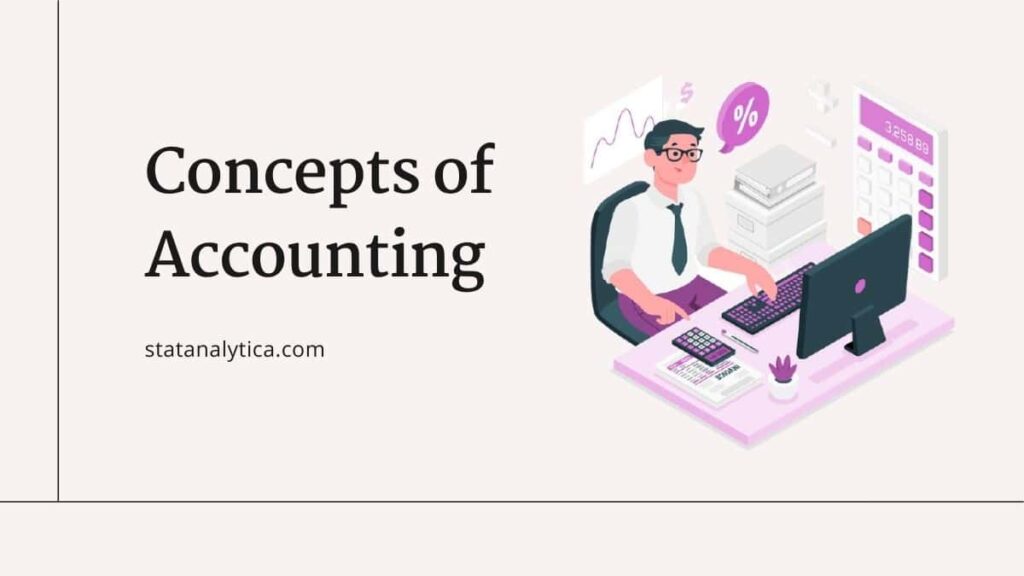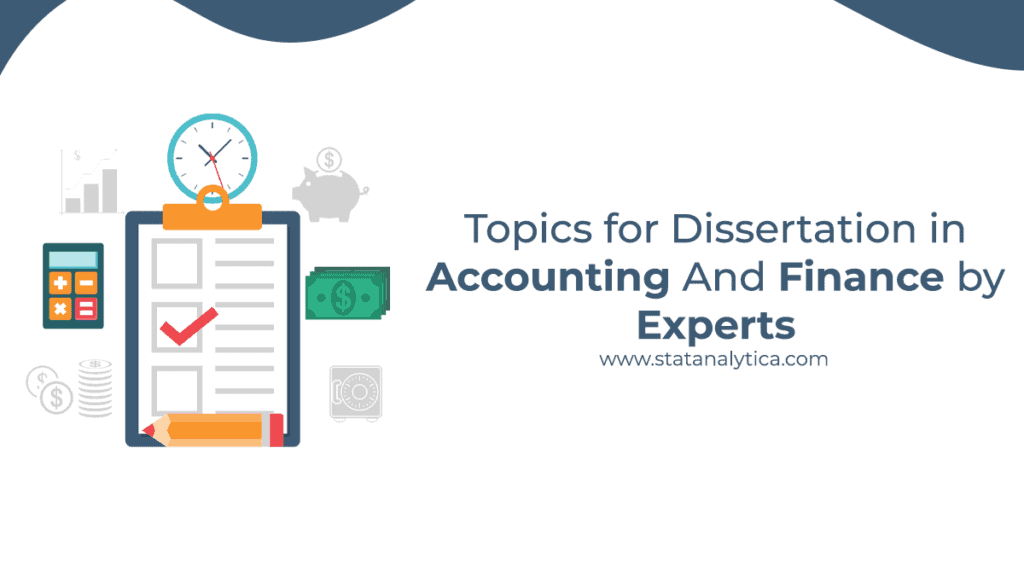Are you looking for accounting concepts? Here, we will serve you the important concepts of accounting with full description but before that, let’s try to understand the term accounting.
What is Accounting?
Table of Contents
In a layman’s language, accounting can be referred to as keeping records of financial transactions of any individual or an entity. Accounting is all about debit or credit, income or expenditure, asset or liabilities.
If we talk about the proper definition of accounting,” it is a process of recording, summarizing, analyzing, and reporting the business-related financial transactions”. It defines the proper way to organize records and report transactions to the management team and other parties. It is helpful for the tracking of assets, liabilities, income, expenses, and equity. If one wants to indulge in the business world, he or she should know the basic concepts of accounting, which we will discuss later.
Almost everyone is familiar with accounting on a personal and professional level. On a personal level, people use accounting to maintain their budget, expenses, and income records. However, on a professional level, business endeavors use the accounting process to analyze its income and expenses, determine a company’s financial position, and more.
Note-Scope and methods of accounting can differ from entity to entity. |
What do you understand about Accounting Concepts?
Accounting concepts usually adopt principles that form the basis of preparation of universal forms of financial statements regularly. In other words, accounting concepts are the fundamental rules, predictions, and conditions which define the parameters and limitations within the accounting operations.
What are the Objectives of Accounting?
Here we are listing some aims or objectives to accounting.
- The prime objective is to achieve stability and eternity in the financial statement maintenance and preparation.
- It helps the accountants to prepare and maintain the business records because it acts as a fundamental principle.
- It focuses on achieving a general understanding of rules or predictions to be followed by all entities.
Major Concepts of Accounting-
Below is the list of major accounting concepts-
Concept of Business Entity
The businessmen and his or her possession (organization/company)are separate titles as per the business entity concept. To put it more simply, Mr. Bajaj and his online trading company both are different units.In this concept if a businessman invests money/capital in his organization,the liability of the business will rise in the form of capital and this company is liable to pay it back to the owner.
Concept of Money Measurement
According to this concept, if the stock has its monetary value/cash rather than quantity, in the accounting record we can reserve these transactions easily. For example, we have to figure and reserve the value of the below stock items-
- T-Shirt Rs 2,000/-
- Trouser Rs 4,000/-
- Blazer Rs 5,000/-
- Jackets 200 pieces
- Inner wears 300 pieces
Calculate what the value of the Stock is?
In this case, if we intend to arrange the value of Stock in our record, we should have the value of jackets and inner wear in cash. Now consider the values of
- Jackets Rs 30000/-
- Inner Wears Rs 20,000/-
Now the value of stock is Rs 61,000/- (2000+ 4000+ 5000+30,000+20,000) and we can arrange it in our records easily. Quantitative records should be kept separately.
Also Read
Concept of Going Concern
Accounting is based on the prediction/assumption that a business is a going concern not a gone concern. In simple words, it is expected that a company will continue to operate for a long time period with its dedication and responsibilities. Accounting assumes that there is no need to quit the business operations of any organization. The going concern concept does not work in the following situations.
- When an organization is mentioned as non-functioning.
- On the time of organization will terminate,
- When a business endeavor is facing a financial crisis and decides to dissolve..
Concept of Cost
This concept is based on the Going Concern Concept. We record the value of assets on the basis of cost rather than the net achievable value or market value on the prediction that a business is running or going concern.
Undoubtedly we decrease the value of assets giving depreciation to assets, but we avoid the market value of investments. When we consider the net achievable value/market value, this concept curtails any manipulation. If we talk about its drawback cost concept, overlook the inflation impacts in the market, that can be high sometimes. Nevertheless, the concept is worldwide accepted on behalf of that we do the accounting of a business.
Dual Aspect Concept
There must be a double entry to complete any financial transaction, which means debit should always be equal to the credit. Hence, every financial transaction has its dual/two aspect-
- We get/purchase something for profit
- We pay/provide services
For example, if we buy some stock, then it will have two effects:
- The stock value will get higher
- It will increase our accountability in the form of creditors.
| Accounting Equation is based on this concept.Assets=Equities (liabilities+capital). |
At every step of operation, the assets of any company should be equal to its equities in terms of money.
Concept of Accounting Period
An accounting period is the time duration of one year, when we evaluate the net profit/loss, position of a company with the help of a balance sheet. This balance is prepared at the end of the year. This accounting period aims to take the various measures on previous experiences, taxation, and curb the seasonal changes impacts on the organization.
This concept is useful in the bifurcation of revenue expenditure and capital expenditure
Revenues expenditure is debited to the profit and loss account to calculate the net profit and loss in an accounting period. Whereas capital expenditure comes in those expenses. The advantages will be used in the further accounting periods. The accounting period is helpful to discover the position of the firm at a consistent period or at the end of every accounting period.
Concept of Matching
This concept is related to the concept of the accounting period. In order to determine the net profit/loss of the Company for an accounting period. We match the expenditure of the organization with the revenue of the same accounting period. This matching practice is accepted worldwide. Let’s understand this concept with the help of an example.
We have the data of a XYZ Company of the years from 01-04-2016 to 31-03-2017.
| S.No. 1 2 3 4 5 6 7 8 | Particulars 500 PVC pipes @ Rs 200 per pipe are sold on a cash basis. 100 PVC pipes @ Rs 200 per pipe sold on credit to M/s ABC traders 300 sanitary taps @ Rs 100 per piece are sold on cash basisPurchase made from M/s Aman traders (any company) Ltd. Cash paid to M/s Aman traders Ltd. Transport/delivery charges paid on purchases Electricity expenses of company paid Bill for march 2017 for electricity still pending and to be paid next year | Amount 10,0000 20,000 30,000 50,000 40,000 2,000 10,000 2,000 |
So on the basis of this data the profit or loss the any Company can be evaluate as-
| Particulars Sale Pipes Sanitary Taps Less PurchasesTransport ChargesElectricity chargesPending expenses Net Profit | Amount 1,20,000 30,000 50,0002,00010,0002,000 | Total 1,50,000 64,000 86,000 |
In this example, to match expenditures and revenues during the accounting period 2016 to 2017 we added the credit purchases and the pending expenses of this accounting year to find out the net profit for this period. It implies that the collection of cash and payment in cash is avoided while measuring the profit or loss of this period.
Concept of Accrual
As we saw earlier in the matching concept, the revenue and expenditure of the same accounting period are included. In the Accrual concept, if we sell some items or we provide some service, then it becomes our point of revenue generation regardless of cash receiving or not. The same applies to the expenses scenario. We consider paid in cash or payable expenses and ignore or deduct the advance payment regarding costs.
Concept of Objective Evidence Concept
Some objective evidence should carry every financial entry as per the concept of objective evidence. The purchase should be carried by purchase bills, sale with sale bills, cash payment with cash memos, payment to creditors with cash receipts, and bank statements.
Likewise, there is a need to verify the Stock physically and its value with purchase bills. If these points are missing, the result of accounting will not be accurate or trustworthy. The financial statements will not be reliable due to the high manipulation of records.
Conclusion
In this blog, we have discussed various concepts of accounting which we use to frame financial decisions. These concepts are rules and assumptions that are helpful for accountants regarding financial statement preparation.
Accounting concepts are essential building blocks of the accounting system that aims to deliver uniform and regular financial information to credible investors and stakeholders. I hope this blog is beneficial for you to understand the various accounting concepts. Get the best cost accounting assignment help and cost accounting homework help to clear all your concepts.
Frequently Asked Questions
What is the difference between Accounting and Accountancy?
Usually, people consider accounting and accountancy as similar terms, but there is a slight difference between these terms. Accountancy is helpful for the accountant’s profession who does the work of accounting; however, accounting is the systematic process of business transactions recording and translating these records or reports for the user’s utilization.
What is the importance of the Accounting Concept?
The applications of Accounting concept is applied at each and every step of the financial transaction recording of any entity.
Concepts of accounting are time efficient and save the efforts/energy of the accountants because of the proper framework it provides.
It enhances the quality, reliability, relevancy, and comparability of financial statements.
What is a Balance Sheet?
The balance sheet is an aspect to measure the financial health of the business. It represents the assets, liabilities, and equity of a Company. It is useful to discover the credibility of the Company. It is prepared at the end of every financial year.

